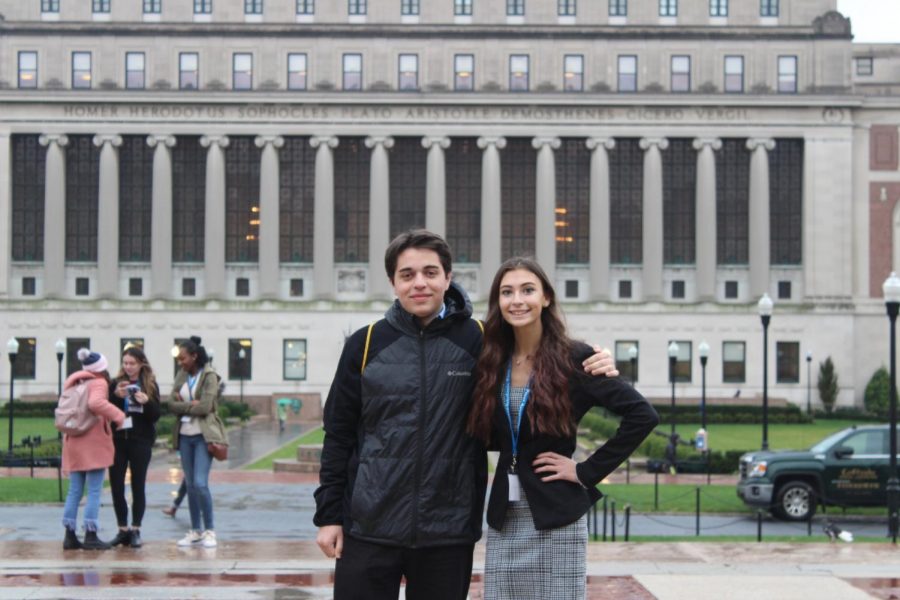Does ‘Fake News’ affect High School Media?
November 9, 2018
Fake news is nothing new. In fact, it’s been around for centuries. From the days of our founding fathers, to now, with recent political events, fake news seems to be a phrase that’s constantly in use.
At Columbia University, David Uberti, a writer from New York, gave a little talk regarding this issue. He highlighted the importance of spotting fake news, and how young journalists today can help prevent it. But, what is fake news really?
Uberti describes is as “notably fabricated information that has been produced to seemingly look like real news.” Fake news has become an epidemic to modern day society. It has divided people across the nation, even the globe. If fake news isn’t kept in check, it can become a dangerous threat; almost as scary as world terrorism.
Of course, some fake news may be more notable than others but its main purpose is to draw attention and convince others of things that aren’t true. David Uberti explained how fake news has been a tool since the beginning of time. It was a way persuade others into believing illegitimate things. One of the best examples is propaganda from the WWII era. In the U.S., much of it was centered around making Germans seem like a cruel and animalistic society. Pictures even depicted them as beastly or monster-like. By distributing such false information, countries like the United States were able to recruit more people for war.
What about today? What fake news have we seen in light of recent events? Here are the false stories, along with the percentages of Obama supporters who believed they were at least “probably” true (in parenthesis):
- Clinton was in “very poor health due to a serious illness” (12 percent)
- Pope Francis endorsed Trump (8 percent)
- Clinton approved weapons sales to Islamic jihadists, “including ISIS” (20 percent)
Some people and researchers have even suggested that fake news might have won Donald Trump the 2016 election. Whether people agree with this suggestion or not, it highlights the importance of how much an effect fake news can have in our daily lives.
David Uberti asked us, as young journalists, to try and prevent this by checking and questioning everything. Not to just blindly believe everything that we hear. As future writers and social media users we should make sure that the information we tweet and post is accurate and not just some false propaganda. By doing so, we can decrease the tight hold fake news has over us.
